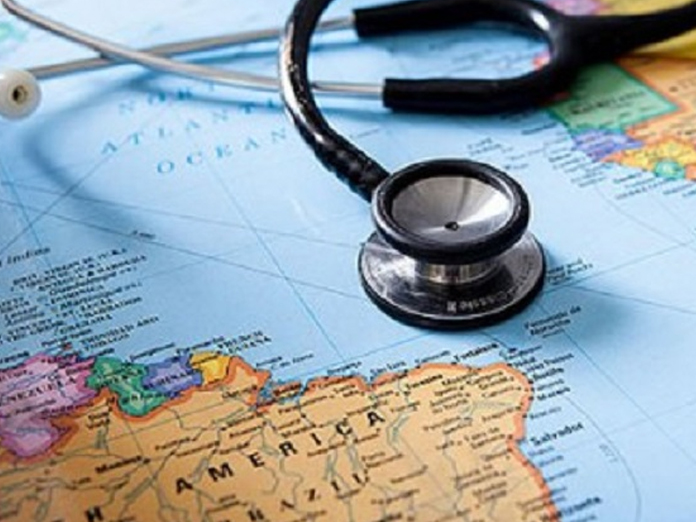Live
- Hero Motosports Team Rally Announces Squad For Dakar Rally 2025
- Two Men Found Dead In Parked Caravan In Kerala
- Mandhana moves closer to top spot in ODI, T20I rankings
- IND vs AUS Boxing Day Test 2024: Sam Konstas Debuts, Travis Head’s Fitness in Question
- Congress Challenges Election Rule Amendments In Supreme Court
- Jaishankar’s US Visit: Key Diplomatic Engagement Amid Leadership Transition
- Orthodox Church Bishop Criticizes PM Modi’s Christmas Celebration Participation
- Janhvi style & grace takes centre stage
- Allu Arjun’s Pushpa 2 Becomes First Hindi-Dubbed Film to Cross Rs 700 Crore
- ‘Legally Veer’ pre-release event creates buzz
Just In

The World Health Organization WHO has listed out 10 global health threats for 2019, adding that millions of lives will be at risk if these threats are not addressed
The World Health Organization (WHO) has listed out 10 global health threats for 2019, adding that millions of lives will be at risk if these threats are not addressed.
The United Nation's public health agency, thus, is starting a new five year strategic plan– the 13th General Programme of Work.
According to the WHO, the plan focuses on a triple billion target that includes ensuring 1 billion more people benefiting from access to universal health coverage, 1 billion more people being protected from health emergencies and 1 billion more people enjoying better health and well-being.
Here is the list of health issues that need urgent attention, according to the global health body: Air pollution and climate change: This year, air pollution is considered as the greatest environmental risk to health.
Microscopic pollutants in the air can damage the lungs, heart and brain, killing 7 million people prematurely every year from diseases such as cancer, stroke, heart and lung ailments.
Non-communicable diseases: Ailments such as diabetes, cancer and heart disease, are collectively responsible for over 70 per cent of all deaths worldwide, or 41 million people every year, according to the statistics put out by the WHO.
This includes 15 million people dying prematurely. Global influenza pandemic: The report, which the WHO put out on its website, further says the world is waiting to face another influenza pandemic.
The WHO is constantly monitoring the circulation of influenza viruses to detect potential pandemic strains.
Fragile and vulnerable settings: More than 22 per cent of the global population lives in places where protracted crisis (through a combination of challenges such as drought, famine, conflict and population displacement) and weak health services leave people without access to basic care.
Antimicrobial resistance: Antimicrobial resistance, the ability of bacteria, parasites, viruses and fungi to resist medicines could send the medical fraternity back to a time when it were unable to easily treat infections such as pneumonia, tuberculosis, gonorrhoea, and salmonellosis.
Ebola and other high-threat pathogens: In 2018, the Democratic Republic of the Congo saw two separate Ebola outbreaks, both of which spread to cities of more than 1 million people.
Weak primary health care: Many countries do not have adequate primary health care facilities. This neglect could be due to lack of resources in low or middle-income countries, but could also possibly be due to focus in the past few decades on single disease programmes.
Vaccine hesitancy: The reluctance or refusal to vaccinate, despite the availability of vaccines, threatens to reverse the progress made in tackling vaccine-preventable diseases.
Complacency, inconvenience in accessing vaccines, and lack of confidence are key reasons underlying hesitancy.
Dengue: The mosquito-borne disease that causes flu-like symptoms can be lethal and kill up to 20 per cent of those with severe dengue, which has been a growing threat for decades. An estimated 40 per cent of the world is at risk of dengue fever.
HIV: While the progress made against HIV is commendable, the epidemic continues to rage with nearly a million people dying from HIV/AIDS every year.
The WHO plans to work with countries to support the introduction of self-testing technique so that more people living with the virus know their status and can receive treatment in time.

© 2024 Hyderabad Media House Limited/The Hans India. All rights reserved. Powered by hocalwire.com







